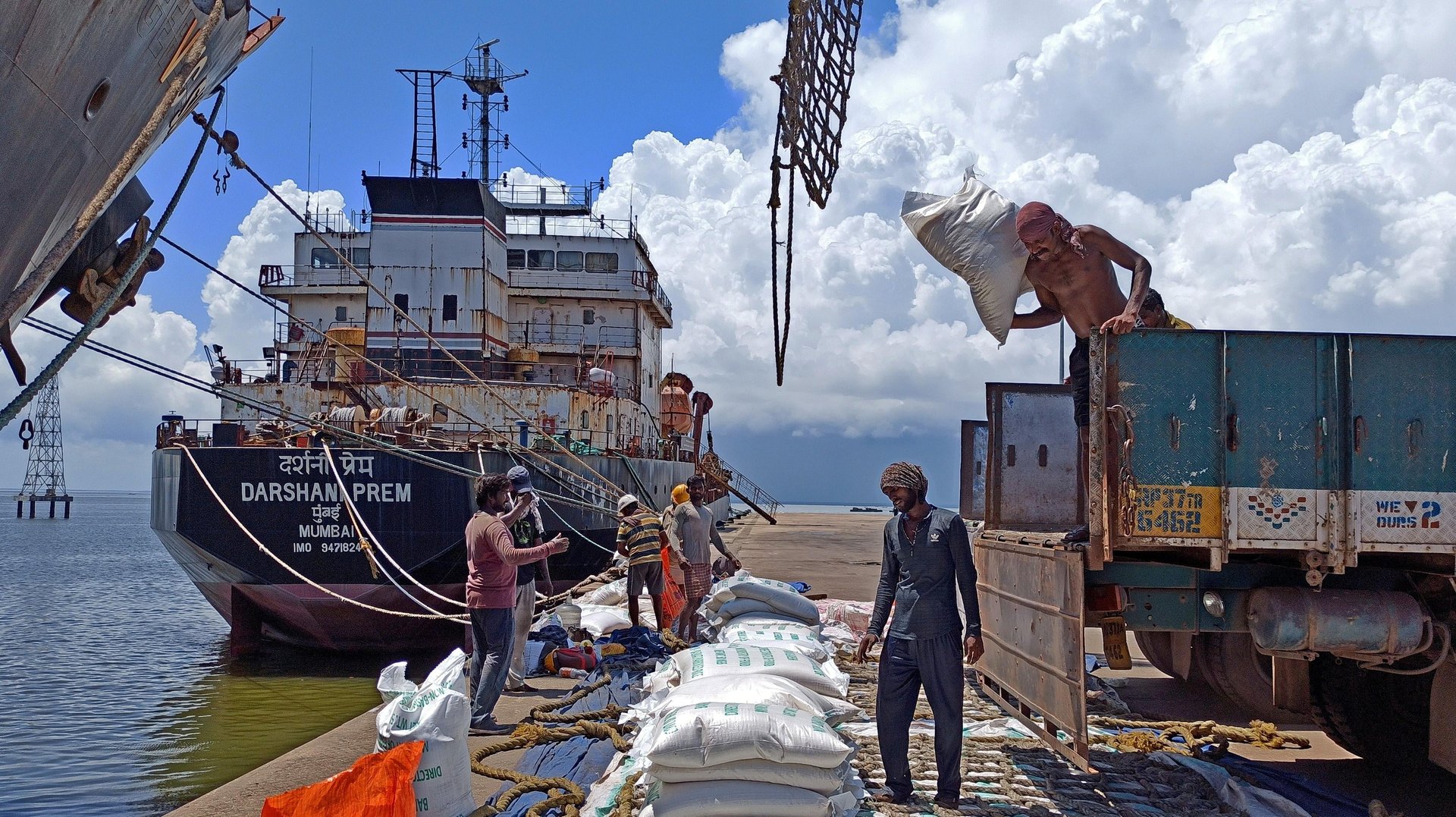The global economic downturn has begun to affect India's trade
India must reduce its import bill to resist external headwinds

The incipient global recession has begun to affect India.
In December, India’s merchandise exports declined 12.2% to $34.5 billion, from a year ago, according to government data released yesterday (Jan. 16). This marked the second contraction in three months, owing to a slowdown in demand. Imports also shrank, albeit at a slower pace of 3.5%, to $58.2 billion.
“Weakening of global demand on account of rapid tightening of global financial conditions and persistence of heightened geopolitical uncertainty would continue to impinge upon export momentum in the coming quarters,” economists at QuantEco Research said in a note today (Jan. 17).
In value terms, a fall in commodity prices globally also impacted the export and import figures for December 2022.
Under exports, 19 of the 30 key segments declined from a year ago (pdf). These include petroleum products (26.9%), engineering goods (11.9%), gems and jewellery (15.2%), and drugs and pharmaceuticals (1.9%). On the other hand, imports of key items like gold, silver, electronic goods, and project goods also contracted.
India’s exports to the US were highest at $59.6 billion in April-December 2022. Others that followed are the UAE, Netherlands, Bangladesh, and Singapore.
India should aim to reduce its import bill
With the likelihood of a global recession rising in 2023, Indian traders are likely to face more challenges. A part of the problem is that India imports more than it exports, inflating the country’s trade balance.
Analysts believe its reliance on crude oil for 80% of its energy requirements must be reduced. “India must re-energize exploration of local oil fields and enhance production through coal mines. Any development will cut the energy import bill substantially and improve the current account,” The Economic Times reported in January, citing the economic think tank Global Trade Research Initiative (GTRI).
India is estimated to pay $270 billion for coal and crude imports in 2022, accounting for about 40% of its total merchandise bill, GTRI said.
India’s commerce ministry is doing a “country-wise as well as commodity-wise” analysis to boost exports, the Financial Times reported today, quoting commerce secretary Sunil Bharthwal. The government is seeking indigenization and modernization of its defence sector, too.
This would strengthen the economy by both saving the exchequer a whole lot of expense on imports and generating employment opportunities within India.